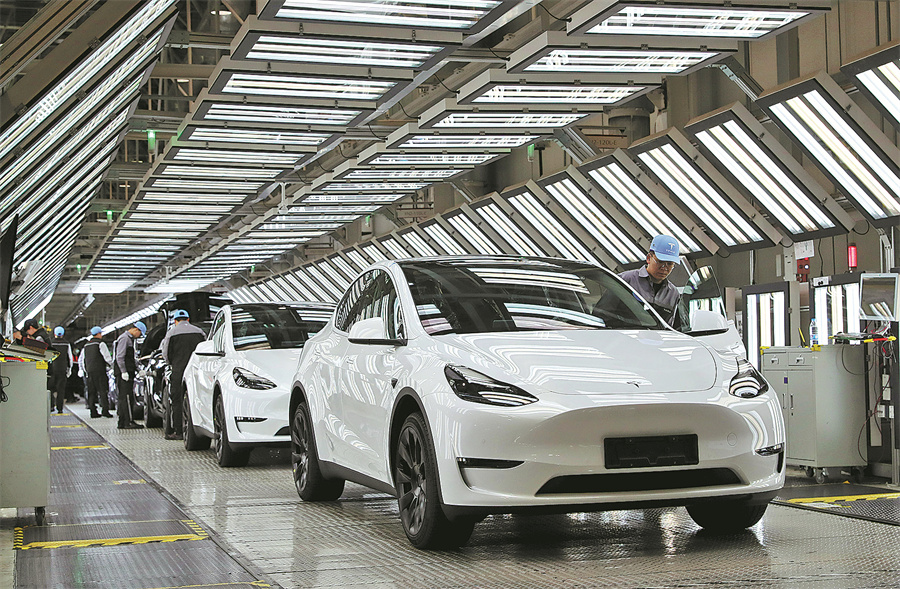Action needed to attract foreign investment
More should be done to enable companies to take advantage of China's vast market, industrial and supply chains, advisers say


By the end of this year, Goodyear Tire and Rubber Co, a United States tire manufacturer, plans to complete the second phase of its factory located in Kunshan, Jiangsu province. This project is anticipated to yield an annual operating revenue of 700 million yuan ($98 million) with a $200 million investment.
The Regional Comprehensive Economic Partnership has helped the company reap more business opportunities to ship tires made in Chinese factories to Japan and several Southeast Asian nations, said Chris Helsel, Goodyear's senior vice-president for global operations.
Working mechanisms to expedite the progress of major foreign investment projects will be further improved, and targeted and efficient services will be provided, so that they can focus on business operations, said Pang Ming, chief economist with global consultancy JLL China.
Looking ahead, China is expected to further consolidate and enhance its attractiveness for foreign investment, with particular emphasis on sectors such as the digital economy, green economy and high-tech industries, Pang said.
Stronger policy support should be provided and restrictions removed as appropriate, to guide more foreign investment toward such sectors as digital economy, green economy, high-tech, and medium- and high-end manufacturing, as well as the central, western and northeastern regions of the country, he added.
Last year, high-tech industries accounted for 37.4 percent of total foreign direct investment, increasing by 1.3 percentage points compared with 2022 and posting a record high. Additionally, the manufacturing sector saw an increase in its proportion of FDI by 1.6 percentage points, registering 27.9 percent, data from the Ministry of Commerce showed.
China should introduce a range of incentives, including tax breaks, subsidies and research grants to attract foreign investment in the aforementioned industries, said Xu Hongcai, deputy director of the China Association of Policy Science's Economic Policy Committee.
Moreover, governments at all levels should scale up efforts to remove any obstacles that may impede foreign businesses from operating on an equal footing, with focuses on clearing laws and regulations that hinder fair competition, eliminating local protectionism and dismantling discriminatory practices based on ownership, Xu said.
The National Development and Reform Commission, China's top economic regulator, vowed to take steps in November to align government procurement practices, land supply, tax exemptions, qualification licensing, standard-setting, project declaration and human resources policies with international standards, in a bid to remove any discriminatory barriers and guarantee fair competition for foreign-funded enterprises.
Some foreign investors have shifted their production lines away from China in recent years, driven by cheaper costs elsewhere.
The lion's share of foreign investors is primarily attracted by the country's development opportunities and by its sheer size and expanding domestic market. These market-oriented investments, with a key focus on acquiring bigger market share, either grew local production in China or shipped their products manufactured overseas to China, said Zhang Yansheng, chief researcher at the China Center for International Economic Exchanges.
China's massive market and huge demand provide foreign investors strong incentives to move facilities closer to their Chinese customers without being bogged down by relatively higher labor costs, Zhang said.
As the world's manufacturing powerhouse, China boasts the world's biggest and most complete industrial system, as well as full-fledged infrastructure, which reinforces its appeal for foreign companies and investors amid a flagging global economic recovery and headwinds of protectionism, he added.
As rising geopolitical tensions undermine confidence among foreign investors, the basic State policy of reform and opening-up must remain front and center no matter how the external situation may evolve, to promote high-standard liberalization and facilitation of foreign investment, Zhang said.
























